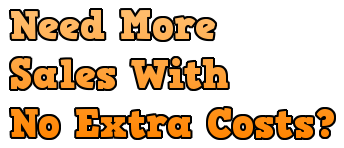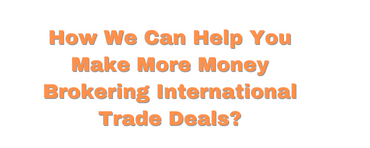Essential Import Compliance Checklist for Your Business
Importing goods to your business can be a complex process. Not only do you need to ensure that you are getting the right products at the right price, but you also need to make sure that you are complying with all of the relevant regulations and laws. Failing to comply with import regulations can lead to costly fines, delays in delivery, and even the seizure of your products. This is why it's important to have an import compliance checklist in place. In this article, we will outline the essential import compliance checklist for your business.
What is Import Compliance?
Import compliance is the process of ensuring that all goods imported into a country comply with the relevant laws and regulations. These laws and regulations can cover everything from product safety to customs duties and taxes. Compliance is important because it helps to protect consumers, prevent unfair competition, and maintain national security.
Why is Import Compliance Important for Your Business?
Import compliance is important for your business for several reasons:
- It helps to ensure that your products are safe for consumers to use.
- It helps to prevent your products from being seized by customs officials.
- It helps to avoid costly fines and penalties.
- It helps to prevent delays in delivery.
- It helps to maintain the reputation of your business.
Essential Import Compliance Checklist for Your Business
Here are the essential items that you should have on your import compliance checklist:
Determine the Harmonized Tariff Schedule (HTS) Code
The HTS code is a 10-digit code that is used to classify goods for import and export purposes. It is important to determine the correct HTS code for your products because it will determine the amount of duty that you will need to pay.
Determine the Country of Origin
The country of origin is the country where the goods were produced or manufactured. It is important to determine the country of origin because it will determine whether the goods are eligible for certain preferential trade agreements, such as free trade agreements.
Check for Restricted or Prohibited Goods
Some goods may be restricted or prohibited from being imported into certain countries. It is important to check whether your products fall into any of these categories before importing them.
Obtain the Necessary Permits and Licenses
Certain goods may require permits or licenses before they can be imported into a country. It is important to obtain these permits or licenses before importing the goods.
Ensure Compliance with Product Safety Regulations
It is important to ensure that your products comply with all relevant product safety regulations. This may include testing and certification.
Ensure Compliance with Customs Regulations
Customs regulations may include requirements such as the submission of documentation, the payment of duties and taxes, and compliance with specific customs procedures.
Ensure Compliance with Trade Agreement Regulations
If your products are eligible for preferential treatment under a trade agreement, it is important to ensure that you comply with all of the relevant regulations and requirements.
Maintain Accurate Records
It is important to maintain accurate records of all import transactions. This includes documentation such as invoices, bills of lading, and customs declarations.
Conduct Regular Audits
Regular audits can help to identify areas where your import compliance processes may be falling short. This can help you to make improvements and avoid costly fines and penalties.
Have a Compliance Plan in Place
Having a compliance plan in place can help you to ensure that you are complying with all relevant regulations and laws. The plan should include procedures for identifying and mitigating compliance risks.
Provide Training for Employees
Training your employees on import compliance can help to ensure that they understand the regulations and laws that apply to your business. This can help to prevent compliance failures and improve overall compliance.
Monitor Changes in Regulations
Regulations and laws can change frequently. It is important to monitor these changes and make any necessary adjustments to your import compliance processes to ensure that you remain in compliance with all relevant regulations.
Stay Up-to-Date on Industry Best Practices
Staying up-to-date on industry best practices can help you to identify areas where your import compliance processes can be improved. It can also help you to stay ahead of potential compliance risks.
Maintain Good Relationships with Customs Officials
Maintaining good relationships with customs officials can help to ensure that your import transactions go smoothly. It can also help you to navigate any compliance issues that may arise.
Conclusion
Import compliance is a critical aspect of importing goods into your business. Failure to comply with import regulations can lead to costly fines, delays in delivery, and even the seizure of your products. By following the essential import compliance checklist outlined in this article, you can help to ensure that your business is in compliance with all relevant regulations and laws.
FAQs
- What is an HTS code, and why is it important? An HTS code is a 10-digit code that is used to classify goods for import and export purposes. It is important to determine the correct HTS code for your products because it will determine the amount of duty that you will need to pay.
- What is the country of origin, and why is it important? The country of origin is the country where the goods were produced or manufactured. It is important to determine the country of origin because it will determine whether the goods are eligible for certain preferential trade agreements, such as free trade agreements.
- What are restricted or prohibited goods, and why should I be aware of them? Some goods may be restricted or prohibited from being imported into certain countries. It is important to check whether your products fall into any of these categories before importing them to avoid any legal issues.
- What should I do if I am unsure about import compliance regulations? It is recommended that you consult with a qualified customs broker or trade attorney who can help you navigate import compliance regulations and avoid potential compliance risks.
- How often should I conduct import compliance audits? It is recommended to conduct import compliance audits on a regular basis to identify areas where your import compliance processes may be falling short and make improvements to your processes accordingly.
Please reach out with your request using one of these ways:
- email: export@ramzisite.info
- Phone: +1 424 208 0297
- Telegram: https://t.me/+14242080297
- WhatsApp: https://wa.me/+14242080297
- FB Messenger: https://m.me/meramzi
- LinkedIn: https://www.linkedin.com/in/increasemynetprofits
To get more real life examples of successful Export transactions in a step by step manner, please read our Amazon Book (Mike Wilson & Ramzi Bouchrit), 7 Steps to Export Success: https://amazon.com/dp/B0B35HG9PC
Click Here and Visit Our Store





